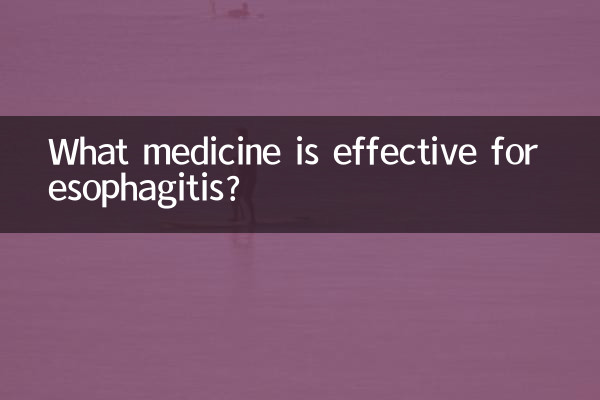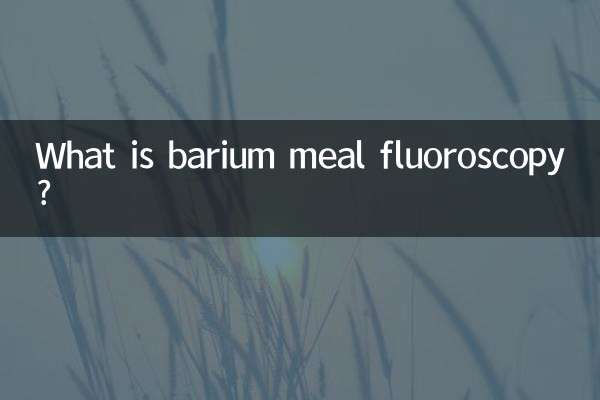What medicine is effective for esophagitis?
Esophagitis is a common digestive tract disease, mainly characterized by symptoms such as retrosternal pain, acid reflux, and difficulty swallowing. Choosing the right medication is critical to relieving symptoms and promoting healing. This article will combine the hot topics and hot content on the Internet in the past 10 days to introduce you to the drug treatment plan for esophagitis in detail.
1. Common types of esophagitis

Esophagitis is mainly divided into the following types:
| Type | Cause |
|---|---|
| Reflux esophagitis | Acid reflux irritates the esophageal mucosa |
| infectious esophagitis | fungal, viral or bacterial infection |
| drug-induced esophagitis | Certain drugs irritate the esophageal mucosa |
2. Commonly used drugs for esophagitis
Depending on the type and cause of esophagitis, doctors usually recommend the following medications:
| drug class | Representative medicine | Mechanism of action |
|---|---|---|
| Proton pump inhibitors (PPIs) | Omeprazole, lansoprazole | Inhibit gastric acid secretion and reduce reflux |
| H2 receptor antagonist | ranitidine, famotidine | Reduce gastric acid secretion |
| Antacids | Aluminum magnesium carbonate, aluminum hydroxide | Neutralize stomach acid and relieve symptoms |
| prokinetic drugs | Domperidone, Mosapride | Promote gastrointestinal motility and reduce reflux |
| Antibiotics (infectious esophagitis) | fluconazole, acyclovir | Treat fungal or viral infections |
3. How to choose the most effective drug?
1.Reflux esophagitis: Proton pump inhibitors (such as omeprazole) are the first choice because of their strong acid-suppressing effect, which can quickly relieve symptoms and promote mucosal repair.
2.infectious esophagitis: Antibiotics or antifungal drugs need to be selected according to the pathogen, such as fluconazole for fungal infections.
3.Mild to moderate symptoms: Try H2 receptor antagonists or antacids, such as ranitidine or aluminum magnesium carbonate.
4.combined with gastric insufficiency: Prokinetic drugs (such as domperidone) can be used in combination to enhance the efficacy.
4. Medication precautions
1. Proton pump inhibitors need to be taken on an empty stomach, usually 30 minutes before breakfast for the best effect.
2. Avoid combination with certain drugs (such as clopidogrel), which may reduce the efficacy.
3. Long-term use of PPIs requires careful attention to the risks of osteoporosis and vitamin B12 deficiency.
4. If the symptoms are not relieved after taking the medicine, you should seek medical treatment in time to adjust the treatment plan.
5. Hot Topics: Adjuvant Treatment of Esophagitis
In the past 10 days, diet and lifestyle adjustments for esophagitis have become the focus of heated discussion. The following are auxiliary methods recommended by netizens:
| Helper method | specific suggestions |
|---|---|
| diet modification | Avoid spicy and greasy food and eat small meals frequently |
| Postural adjustment | Avoid lying on your back within 1 hour after a meal and raise the head of the bed |
| living habits | Quit smoking, limit alcohol, and control weight |
| Traditional Chinese Medicine Conditioning | Try dandelion tea, licorice and other natural anti-inflammatory foods |
6. Summary
The drug treatment for esophagitis needs to be selected based on the cause and symptoms. Proton pump inhibitors are the first choice for reflux esophagitis, while antibiotics are required for infectious esophagitis. Combined with dietary and lifestyle adjustments, you can return to health faster. If symptoms persist or worsen, please seek medical attention promptly.

check the details

check the details